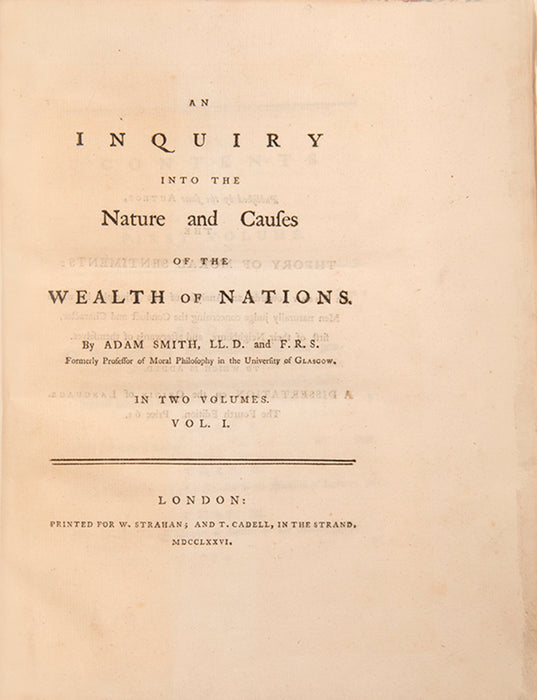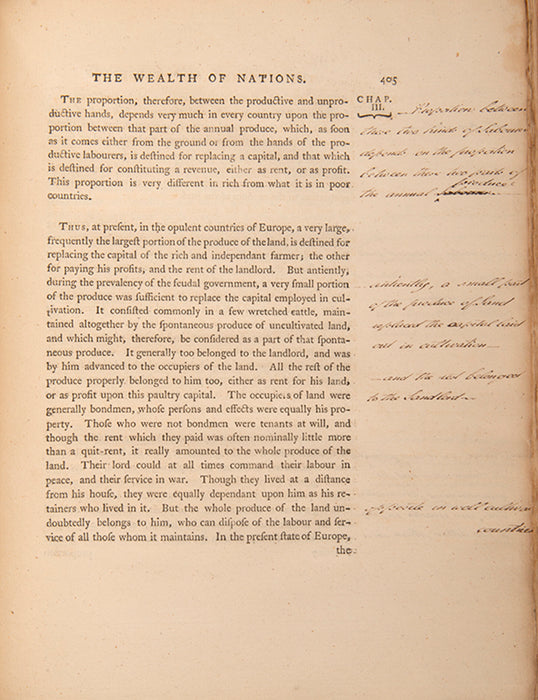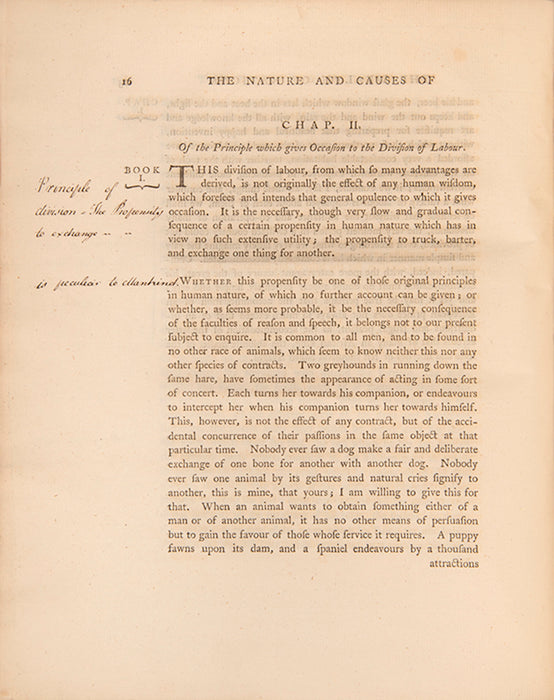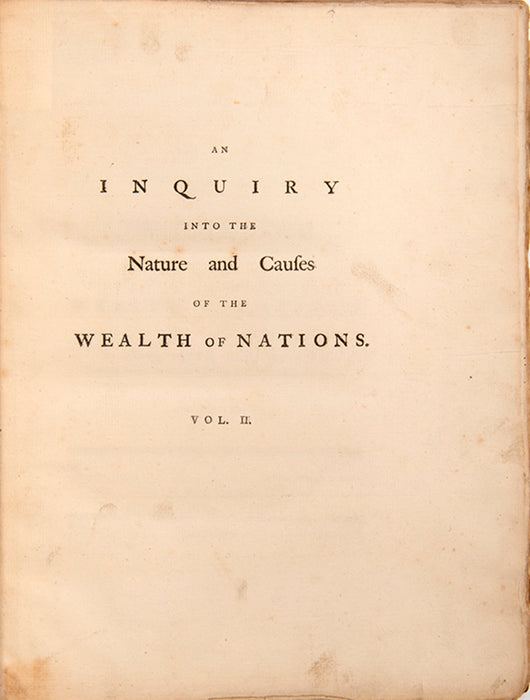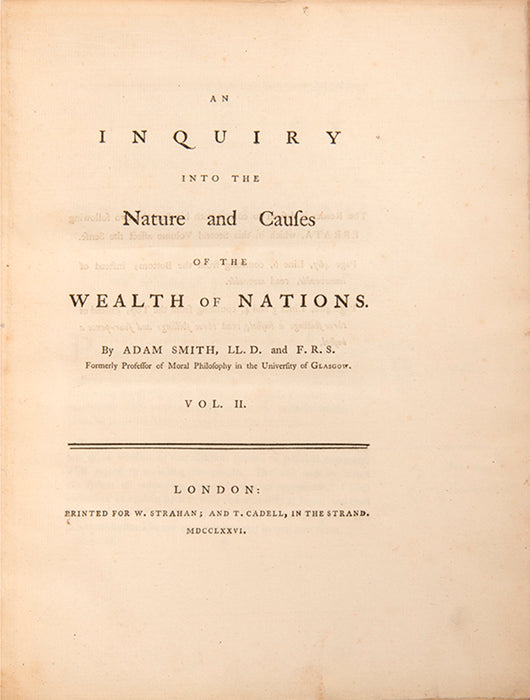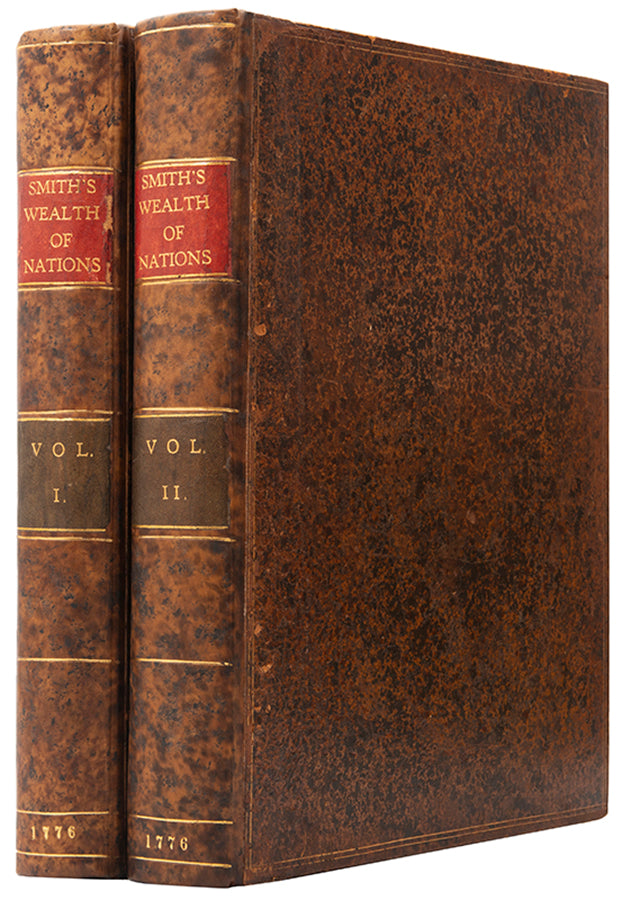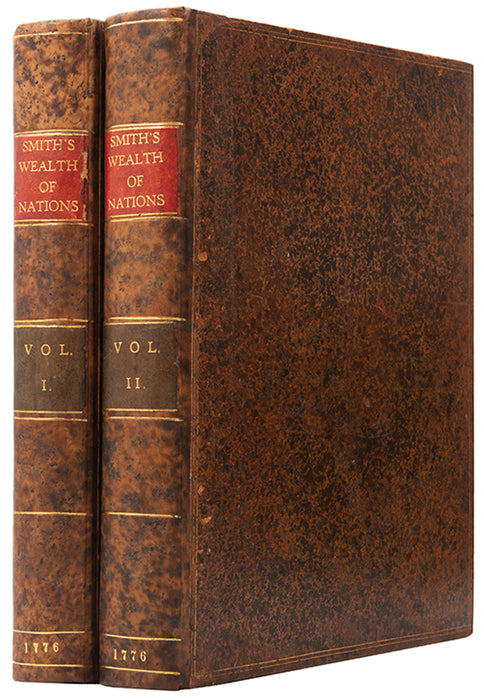
By Adam Smith, LL.D. and F.R.S. Formerly Professor of Moral Philosophy in the University of Glasgow. In Two Volumes.
London, Printed for W. Strahan; and T. Cadell, in the Strand, 1776
As the title explains, the work is fundamentally an investigation into what makes certain nations prosperous. Smith's originality lies in locating the roots of this comparative wealth in the specialisation of labour which had occurred in developed economies, for the 'annual labour of every nation is the fund which originally supplies it with all the necessaries and conveniences of life which it annually consumes, and which consist always, either in the immediate produce of that labour, or in what is purchased with that produce from other nations' (Introduction).
Our copy with contemporary marginal annotations summarising Smith's arguments as the text progresses. These aides-mémoire include key observations such as the 'Principle of division = the propensity to exchange...' (p.16), and that 'labour is the real measure of exchangeable value' (p.35).
'The history of economic theory up to the end of the nineteenth century consists of two parts: the mercantilist phase which was based not so much on a doctrine as on a system of practice which grew out of social conditions; and the second phase which saw the development of the theory that the individual had the right to be unimpeded in the exercise of economic activity. While it cannot be said that Smith invented the latter theory... his work is the first major expression of it. He begins with the thought that labour is the source from which a nation derives what is necessary to it. The improvement of the division of labour is the measure of productivity and in it lies the human propensity to barter and exchange... Labour represents the three essential elements—wages, profit and rent—and these three also constitute income. From the working of the economy, Smith passes to its matter—'stock'—which compasses all that man owns either for his own consumption or for the return which it brings him. The Wealth of Nations ends with a history of economic development, a definitive onslaught on the mercantile system, and some prophetic speculations on the limits of economic control' (PMM).
First edition; 2 vols, 4to (31.5 x 24.5 cm); contemporary marginal annotations in pen, with half-title to vol. II, ad. for 'The Theory of Moral Sentiments' to title verso vol. I, publisher's ad. to vol. II 4F2 verso, errata vol. II [A2] verso, cancels vol. I M3, U3, 2Z3, 3A4 and 3O4, and vol. II D1 and 3Z4, vol. II p.288 misprinted 289; contemporary gilt-ruled sprinkled calf, rebacked but retaining original red and green morocco lettering-pieces, bottom and fore-edges untrimmed, wide margins (circa 6.5 cm), occasional spotting and soiling, minor marginal tears, mostly repaired, internal joints reinforced with tape; [12], 510; [4], 587, [1]pp; signatures: A4 a2 B-3T3 (bound without terminal blank); [A]2 B-4F2.
PMM 221; ESTC T96668; Kress 7261; Rothschild 1897.



About us
Shapero Rare Books is an internationally renowned dealer in antiquarian & rare books and works on paper.
Our Bookshop and Gallery can be found in the heart of Mayfair at 106 New Bond Street, where most of our stock is available to view and on public display.
We exhibit at major international art fairs, including TEFAF (Maastricht and New York), Frieze Masters, Art Miami and Masterpiece London, as well as antiquarian & rare book fairs including New York, Paris, London, Los Angeles, San Francisco and Hong Kong.









